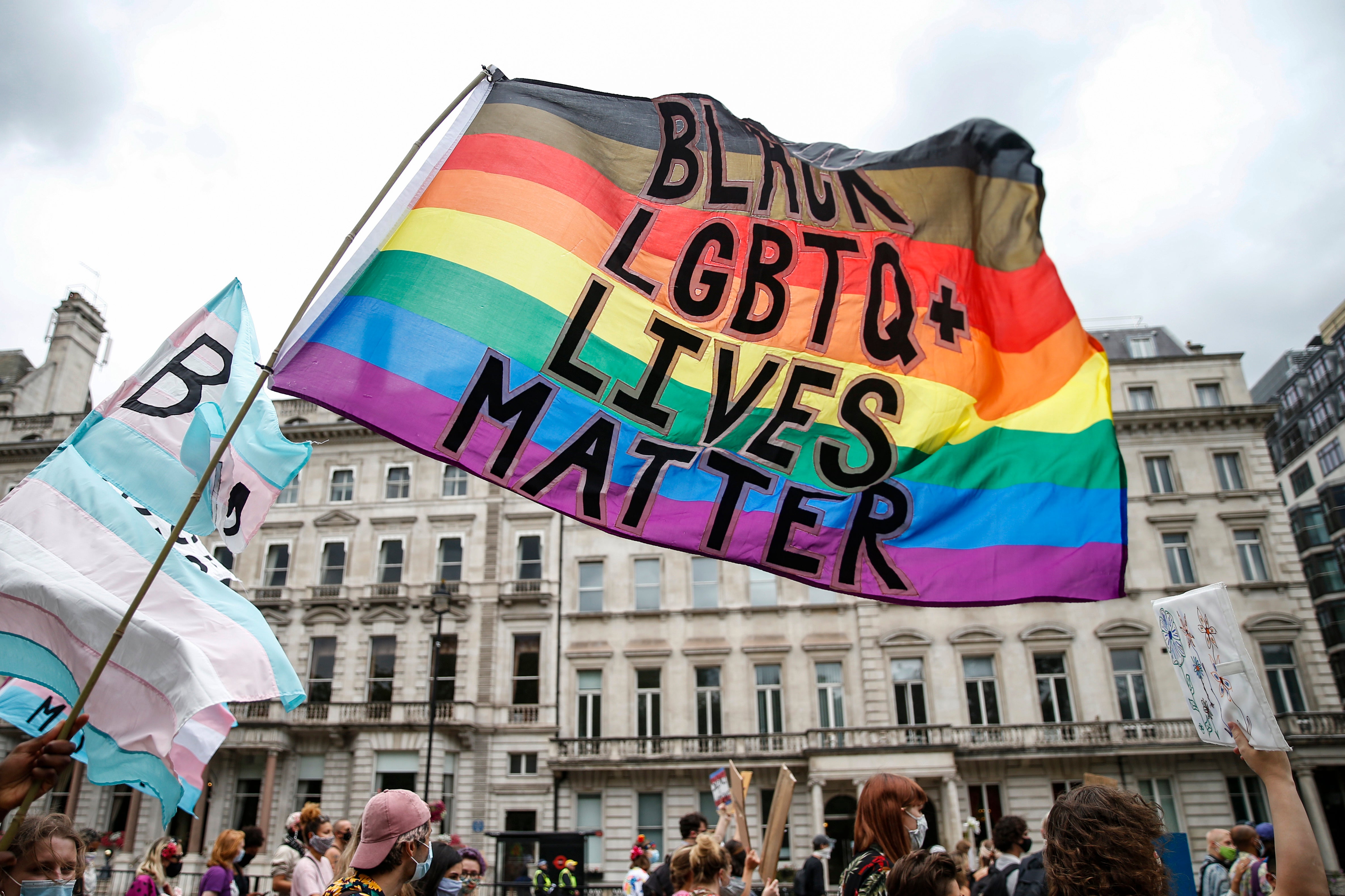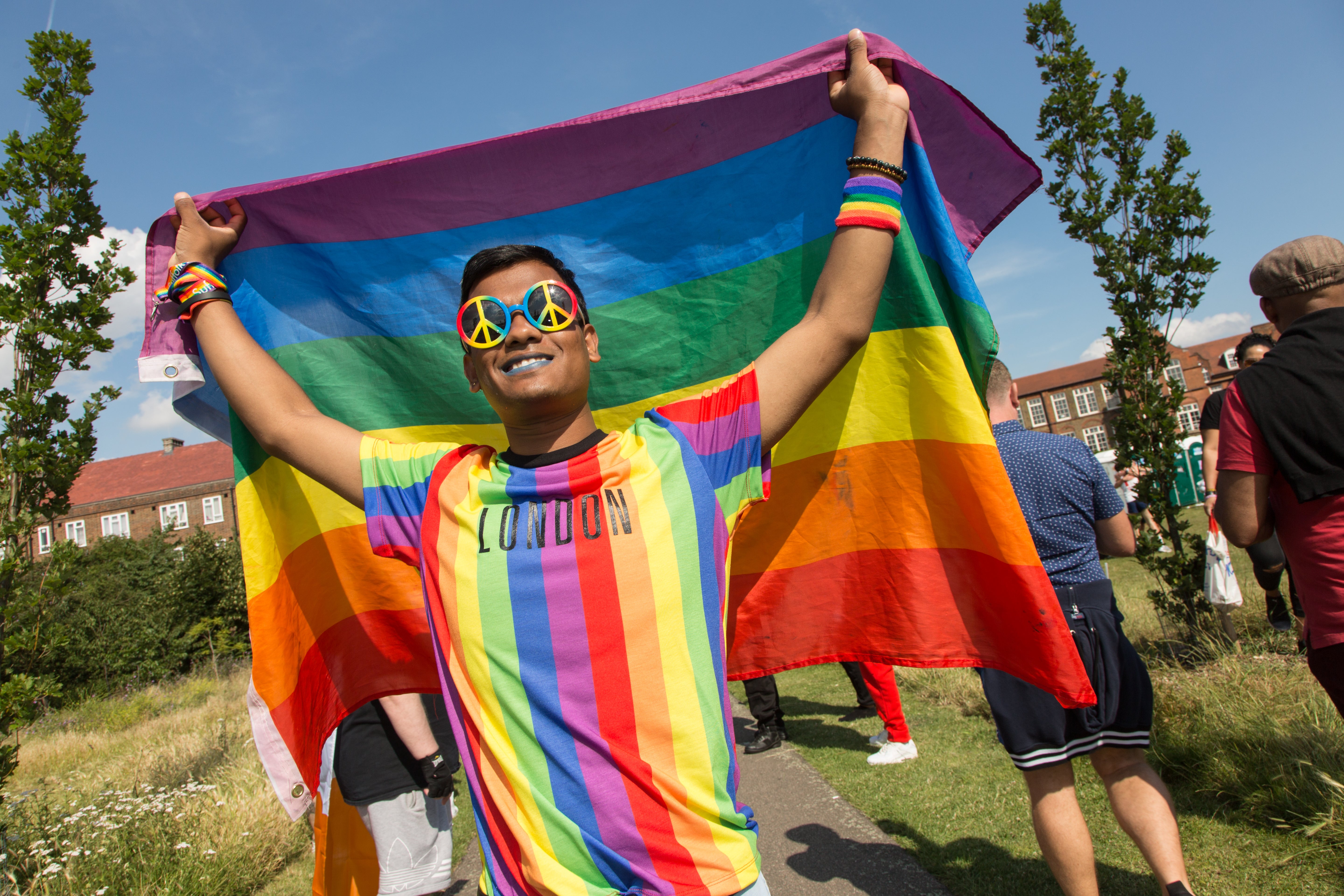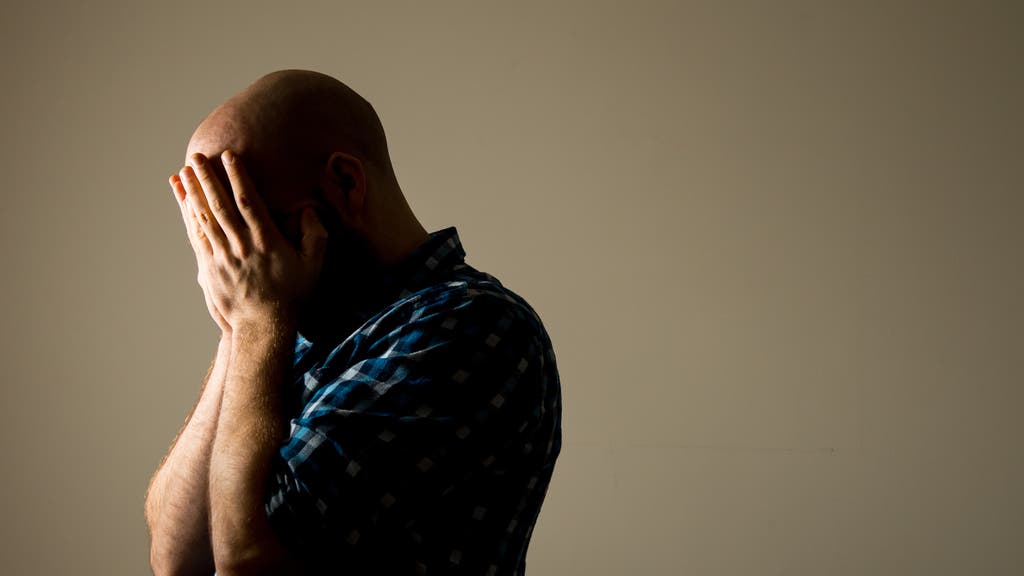LGBT+ ethnic minorities being left behind by society, report finds
Exclusive: ‘A lot of black queer people I know are basically just surviving,’ one participant says

Your support helps us to tell the story
From reproductive rights to climate change to Big Tech, The Independent is on the ground when the story is developing. Whether it's investigating the financials of Elon Musk's pro-Trump PAC or producing our latest documentary, 'The A Word', which shines a light on the American women fighting for reproductive rights, we know how important it is to parse out the facts from the messaging.
At such a critical moment in US history, we need reporters on the ground. Your donation allows us to keep sending journalists to speak to both sides of the story.
The Independent is trusted by Americans across the entire political spectrum. And unlike many other quality news outlets, we choose not to lock Americans out of our reporting and analysis with paywalls. We believe quality journalism should be available to everyone, paid for by those who can afford it.
Your support makes all the difference.Ethnic minority members of LGBT+ communities are being left behind by government policy and wider society with a long-term effect on their wellbeing, according to a groundbreaking new report.
The study, led jointly by researchers from King’s College London and University College London, is the UK’s first major piece of research to analyse the experiences of people living in the intersection of these minority identities.
Experts said their interviews suggested ministers may need to expand the work of their existing LGBT+ task force. The work also follows studies that found Black LGBT+ people felt less safe at school than their white classmates, and that the group had been hit harder than others by the Covid-19 mental health crisis.
Individuals spoke about experiencing racism in LGBT+ spaces and on dating apps, as well as issues around coming out to families and ethnic minority communities. Some spoke about turning to religion for support while others discussed being asked to leave places of worship due to their sexuality and barriers to accessing medical care.
Dr Amal R Khanolkar of King’s College London, who was lead author of the report, said: “This project highlights several diverse issues, some with long-term effects on health and wellbeing, that arise from the intersectionality of living with multiple minority identities.
“This is despite considerable progress in sexual minority rights and acceptance that has not necessarily benefitted all equally. Importantly, it shows that despite rhetoric on addressing ethnic- and sexuality-based inequalities, individuals with more than one minority identity tend to be left behind by government policy and wider society.
“Nonetheless, our report shows that a lot can be done to address issues raised by our participants, from increasing awareness in wider society and more visibility to improving access to healthcare.’’
Concerns were also raised around the lack of representation of sexual and ethnic minorities in UK media, with one person saying: “I think that society just refuses to accept that we exist.”

Twenty-two of the 29 participants mentioned an explicit experience of racism from within the LGBT+ community as well as wider society, with many recounting experiences of stereotyping.
One, who identified as a Chinese bisexual man, said: “I do notice a lot of dating preferences, like racial preferences. Quite a lot of gay guys will say explicitly that they don’t want anything to do with Asians.”
A Pakistani gay man said beauty standards for queer men were rooted in whiteness. He added: “I don’t think ethnic minorities are as desirable in that community, in terms of seeking out romantic or sexual relationships.”
Moreover, some participants felt being marginalised in the LGBT+ community, largely due to the dominance of white gay men but also due to the lack of ethnic minority and LGBT+ specific groups.
Many participants spoke about not being able to access appropriate support or finding their therapists unable to understand the nuances of their multi-faceted identity.
One said: “A lot of black queer people are really depressed. It makes it worse that there are no services. Because it’s just dealing with a lot of factions of your life that are very traumatic and just always having to juggle your norm, being those identities. A lot of black queer people I know are basically just surviving.”

Dr Victoria Redclift of University College London said: ‘’People from minority ethnic groups in the UK experience racism which has been shown to have significant health implications.
“Sexual minority individuals in the UK also experience discrimination thought to worsen health outcomes in comparison to heterosexuals. Yet, until now, no study in the UK has comprehensively examined health and wellbeing in ethnic and sexual/gender minority individuals.
“More research in this area is vital if we are to better understand the experiences of ethnic and sexual/gender minority young people and the severity of risk in regard to mental health and wellbeing.”
Researchers noted that the fate of the government’s comprehensive 2018 LGBT Action Plan remains uncertain with some confusion. While the current government has suggested it will set-up a new LGBT panel, the report suggests that there is an opportunity for an updated agenda to specifically address ethnic minority related issues.
An Equality Hub spokesperson told The Independent: "The government is fully committed to building a fairer Britain and taking action to address disparities wherever they exist.
"No-one in the UK should have to endure violence or discrimination because of who they are or who they love, and the Government is clear that all hate crimes are completely unacceptable and have no place in British society.
“Our ambitious new Equality Data Programme is gathering data to better understand the barriers that people from every background face. It looks at the effect of different characteristics on a variety of key outcomes."
This comes as research by anti-abuse charity Galop, published last month, found that around one in four LGBT+ victims of sexual violence in the UK could have been assaulted by people trying to “convert or punish” them.
Following widespread Black Lives Matter demonstrations in 2020, it was revealed that Black and Asian LGBTQ+ people are still uniquely disadvantaged when trying to find a safe, stable home.
In May 2021, The Independent revealed that Black LGBT+ pupils are far less likely than their white peers to feel safe at school, according to independent research by charity Just Like Us.
Earlier research highlighted that Black LGBT+ students have been hit hardest by the Covid mental health crisis due to a combination of lockdown, family stresses and heightened racial tensions around Black Lives Matter protests, which compounded feelings of isolation.

Join our commenting forum
Join thought-provoking conversations, follow other Independent readers and see their replies
Comments